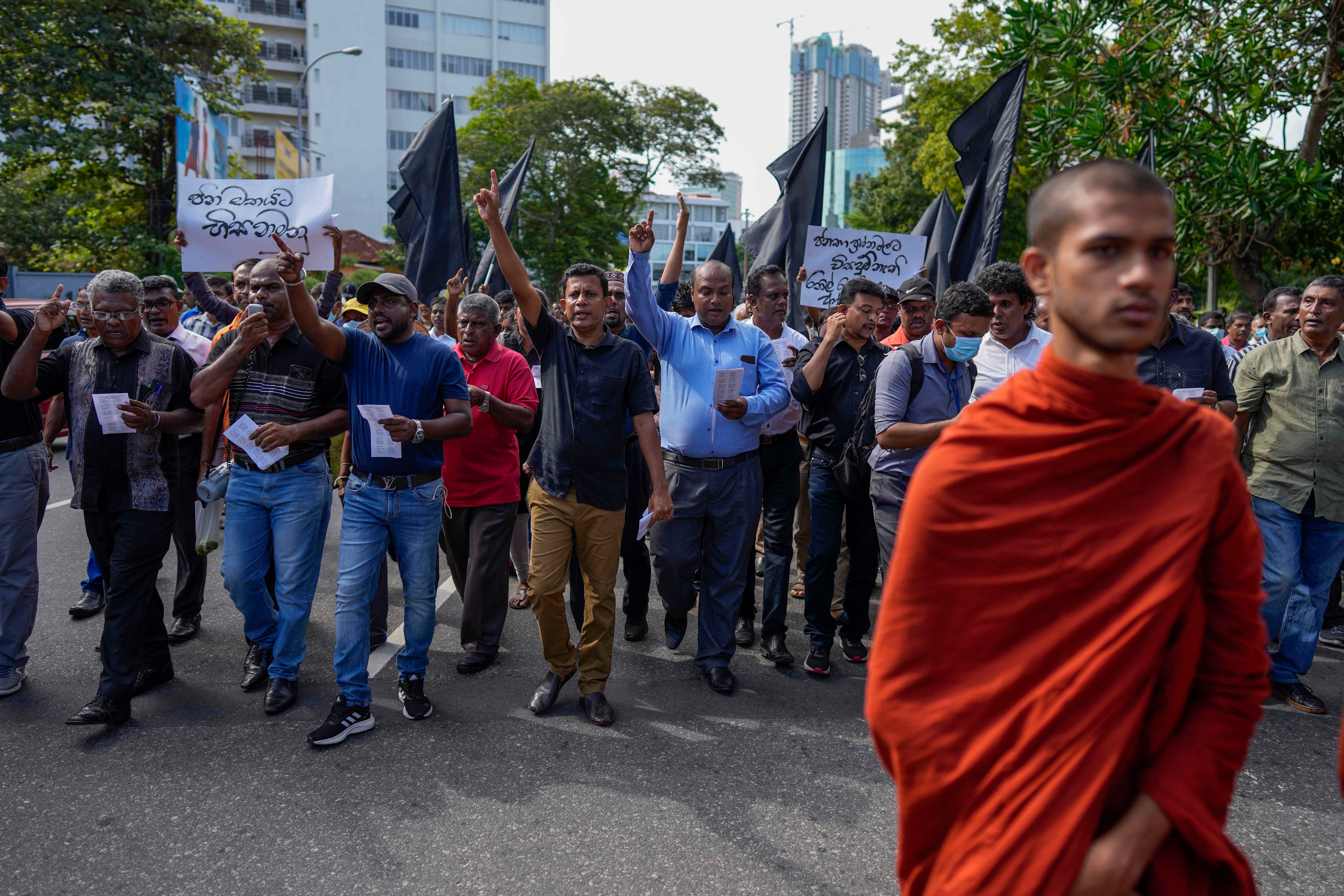Rajapaksa expected to land in Thailand as Sri Lankan protesters pack up camp after brutal crackdown
Gotabaya Rajapaksa fled Sri Lanka on 13 July as anti-government protests intensified
Former Sri Lankan president Gotabaya Rajapaksa is expected to land in Thailand on Thursday for a temporary stay before seeking asylum in another country.
Meanwhile, in Sri Lanka capital Colombo, protesters who brought down the Rajapaksa government due to the poor handling of the severe economic crisis, announced they were dismantling their demonstration site near the president's office amid a violent crackdown on their leaders.
Months of street protests against the government forced Mr Rajapaksa, 73, his wife and two bodyguards to flee the cash-strapped nation on 13 July.
The disgraced president fled to the Maldives before landing in Singapore the next day on a “private visit”.
He was initially issued a 14-day visit pass, which was extended for another two weeks and is set to expire on Thursday. The Singaporean government has maintained that it did not “accord privileges, immunity and hospitality” to Mr Rajapaksa.
He is now expected to land in Bangkok on 11 August, but has no intention of seeking political asylum, Thailand’s foreign minister Don Pramudwinai said on Wednesday.
The current Sri Lankan government reportedly made an appeal on behalf of the ousted president and supported Mr Rajapaksa’s trip to Thailand. Mr Pramudwinai added that the former president should be able to stay in the country without a visa for 90 days because of his diplomatic passport.
Prime minister Prayuth Chan-ocha said it was a “humanitarian issue and there is an agreement that it’s a temporary stay”. During his stay in Thailand, Mr Rajapaksa will not be allowed to engage in political activities, the prime minister added.
The Sri Lankan Supreme Court on Wednesday further extended a travel ban on former prime minister Mahinda Rajapaksa and his brother, former minister Basil Rajapaksa, until 5 September.
Earlier this month, newly-elected president Ranil Wickremesinghe said it was not the right time for Mr Rajapaksa to return. “I have no indication of him returning soon,” he told The Wall Street Journal.

Mr Wickremesinghe, who declared a nationwide emergency in July and handed over absolute power to the military to restore law and order, has been accused of using brute force to dismantle the protest.
The day after his election, security forces were accused of using excessive force to evict demonstrators, with more than 80 people requiring hospitalisation.
Since then, over a dozen of activists have been arrested and charged of damaging state property, prompting demonstrators to clear out their tents along the Galle Face seafront promenade.
Joseph Stalin, a top trade union leader, was released on bail following an international outcry over his arrest on the charge of causing damage for $90.
“We have been protesting for over 120 days. We wanted Rajapaksa gone but we are not happy with Wickremesinghe either. For the time being, we are leaving the demonstration site, but that does not mean the protest is over. We might consider taking it elsewhere,” a protestor, who did not wish to be identified, told The Independent.
Not everyone who has been part of the anti-government protests, however, was ready to evacuate and give in to the crackdown.
Hundreds of Sri Lankans rallied against it on Tuesday demanding answers to the country’s worst economic crisis.
Protesters led by religious and trade union leaders marched in Colombo and made several demands, including withdrawal of emergency laws, an end to the arrests of peaceful protesters and immediate dissolution of parliament.
“Our condition is deteriorating everyday. There is barely anything left to make the ends meet. What should we do if not protest against the government. The use of force on us just the day after Wickremesinghe’s election took us by surprise,” Sajith Lakshan, a college student who has been a regular at the protest site for over two months, told The Independent.
“We will keep the protest alive online.”
Join our commenting forum
Join thought-provoking conversations, follow other Independent readers and see their replies
Comments


Bookmark popover
Removed from bookmarks